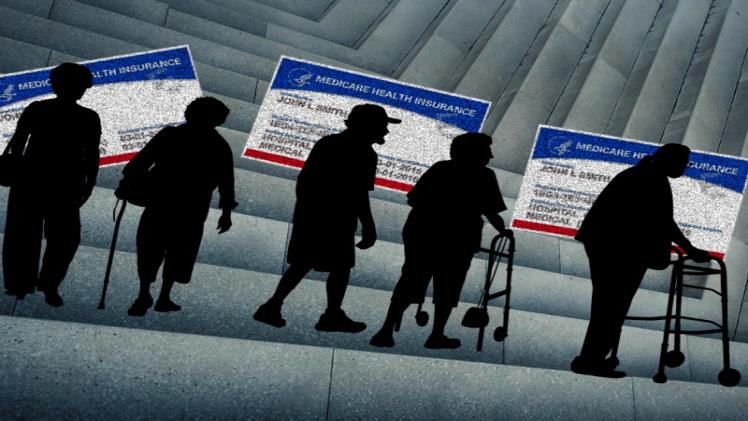The American healthcare landscape is a puzzle with a million pieces, and with each passing year, we see new puzzle pieces entering the fray. In 2025, Humana, one of the titans in the healthcare insurance arena, is stepping onto the board with a vision that’s making its competitors take a long, hard look at their own strategies. In an environment where healthcare is more than just an election talking point but a deeply personal, societal necessity, Humana Medicare Advantage Plans 2025 are not just a glimpse into the corporate future—it’s a gauge for how prepared we are, or aren’t, for what’s to come.
The healthcare system in the United States has long been both revered for its innovation and lambasted for its accessibility and cost issues. The Medicare program, designed to ensure older and disabled Americans have access to healthcare, is at the crux of this dichotomy. In an aging America, with baby boomers knocking on retirement’s door, the importance of a well-running Medicare system cannot be overstated.
But what does it mean for Humana to make its mark on this system in 2025? At the core, it’s about reevaluating what health means, not just as an absence of disease, but as a state of well-being. It’s about leveraging technology to bring patient-focused care back into the center stage. And it’s about a commitment to not only providing coverage but empowering individuals to take charge of their health.
A Technological Tidal Wave
The innovation wave that’s been rolling through every industry has now crashed upon the shores of healthcare. Called ‘Medicare Advantage 2.0,’ Humana’s grand strategy for 2025 is as ambitious as it is necessary. The pivot from a fee-for-service model to value-based healthcare has been a long time coming, and Humana’s tech-forward approach is one that seems not to ask ‘What if’ but ‘Why not.’
Already, we’re seeing the early signs of this digitized approach to healthcare with services like Doctor on Demand and Fitbit collaborations. For patients, it means more convenient, often cheaper, care. It also means accurate, real-time data analysis that can flag potential health issues before they escalate, keeping people healthier and medical bills lower.
But what about the dropouts in the digital era, those who can’t afford the latest smartphone or don’t have access to broadband? It’s a fair question, and one that Humana will have to address diligently. Part of their strategy is community-based care, reaching those who need it the most by leveraging not only tech but the very human touch healthcare was always meant to have.
Reimagining Health
Humana’s narrative for 2025 isn’t just about health—it’s about redefining health. With their ‘Start Boldly’ initiative, they’re encouraging individuals to start their health journeys with confidence, leveraging a wealth of resources aimed at education, prevention, and early intervention.
But it’s not just about making the tools available; it’s about how they’re used. Health literacy remains a critical barrier for many, and Humana’s efforts must be not just about pushing information but ensuring it lands in a way that’s meaningful and actionable. In a world where misinformation can be as contagious as viruses, the need for clear, evidence-based guidance is paramount.
Their focus on mental health and social determinants also marks a significant shift. In recognizing that an individual’s well-being is multifaceted, their approach with network expansions, community health hubs, and telehealth services through telemedicine North Carolina aims to create a system that doesn’t just treat symptoms but supports the underlying needs that can often be the root of chronic illnesses.
Empowering the Patient
Ultimately, Humana’s strategy for 2025 speaks to a fundamental aspect of healthcare that has often been overlooked—the patient. The labyrinthine process of insurance claims and healthcare billing is a source of frustration for many.
Humana’s push for transparency in costs and coverage is a breath of fresh air, and the direction they’re taking with personalized customer service, virtual and in-person, shows an empathetic angle to what is too often a cold, bureaucratic process. They’re also betting heavily on personalized medicine, tailoring treatments and care plans to the individual.
This kind of empowerment is not just about making the process easier, it’s about placing the responsibility for health back into the hands of the person it concerns the most—the patient. In a world where big data and AI are often criticized for depersonalizing experiences, Humana’s approach seems to be using these tools to re-personalize healthcare, understanding that individual experiences and needs are as unique as a fingerprint.
A Social Contract in Flux
Yet, as we marvel at the promise of what a heavyweight like Humana can bring to the table, we also peer into the dark underside—the profits the business must turn, the markets it aims to corner. The moral implications are many, and as we examine the future of Medicare, we can’t help but ask if it’s a sustainable path for societal health or merely a profit roadmap for shareholders.
The social contract we hold with healthcare is a fragile thing, and as we dance on the line between a for-profit model and one of public service, we must be vigilant about who benefits—and at what cost. Humana’s 2025 strategy is laudable in many ways, but it’s in the details of execution that we’ll truly understand its worth.
We’ve seen giants topple under the weight of their own ambitions, and we’ve seen small innovators pave the way for a new kind of norm. In Humana’s 2025 plan, I see both the potential for great change and the risk of grave missteps. And as I contemplate the future it heralds, I can’t help but feel the weight of responsibility that comes with it.
The Road Ahead
Cynicism, tempered with hope, is what I carry as I look down the road of 2025. At a juncture where age-old institutions clash with the innovation they so desperately need, I see a company like Humana not just as an actor in a seasonal play but as a composer of a tune that may become the anthem of healthcare’s future.
But as with any composition, it’s not just the sound that matters—it’s the audience it reaches. If 2025 is to be the year of Humana, it must also be the year of every American it serves. It’s a time for listening, for understanding, and for partnerships that put people, not profits, at the center.
In this op-ed that’s as much about a company’s promise as it is about the integrity of a system, I encourage every stakeholder to hold these words not as an endorsement or a rejection but as a call to action. For as much as we’ll watch the future of Medicare play out, it’s our individual and collective choices that will define it. And as Humana marches forth with its vision, I stand ready to question, to challenge, and to scrutinize, but also to hope, to collaborate, and to build a future where healthcare truly is a human right—innovative, personal, and just.






